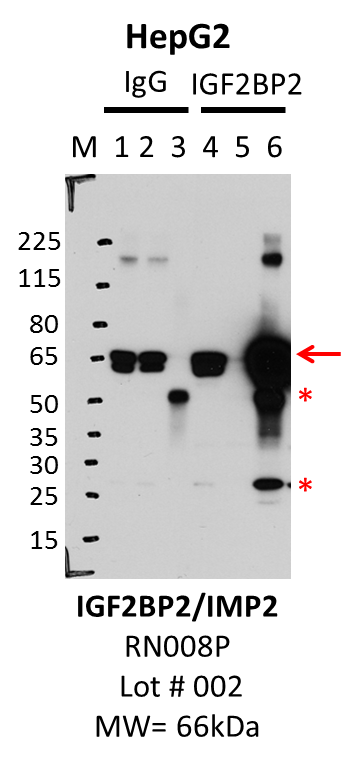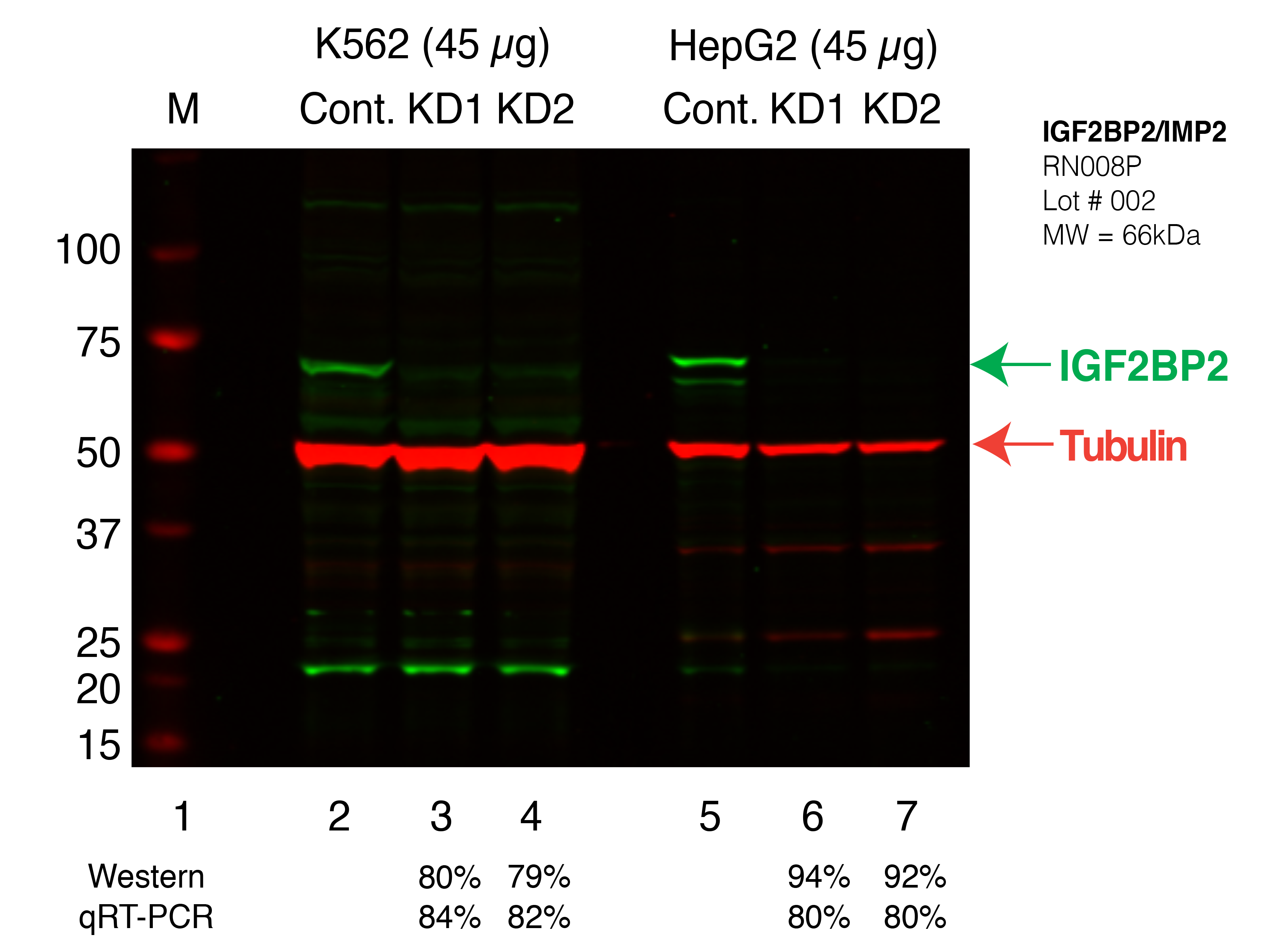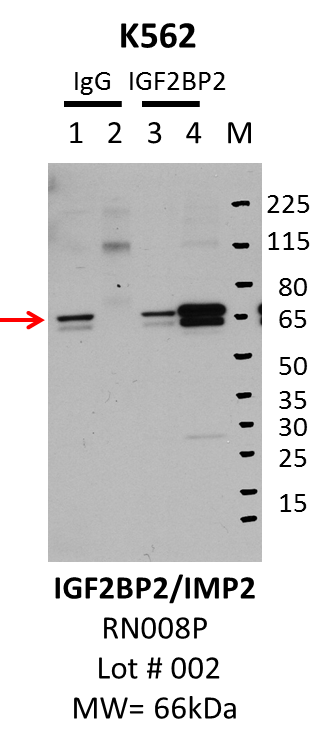ENCAB597TIV
Antibody against Homo sapiens IGF2BP2
Homo sapiens
HepG2, K562
characterized to standards
- Status
- released
- Source (vendor)
- MBLI
- Product ID
- RN008P
- Lot ID
- 002
- Characterized targets
- IGF2BP2 (Homo sapiens)
- Host
- rabbit
- Clonality
- polyclonal
- Purification
- affinity
- Antigen description
- KLH-conjugated synthetic peptide KQQEQKYPQGVASQRSK ï¼ 583-599 aa)
- Antigen sequence
- KQQEQKYPQGVASQRSK
- External resources
Characterizations
IGF2BP2 (Homo sapiens)
HepG2
compliant
- Caption
- IP-Western Blot analysis of HepG2 whole cell lysate using IGF2BP2 specific antibody. Lane 1 is 2.5% of five million whole cell lysate input, lane 2 is 2.5% of supernatant after immunoprecipitation and Lane 3 is 50% of IP enrichment using either rabbit polyclonal anti-IGF2BP2 antibody (lanes under 'IGF2BP2') or using rabbit normal IgG (lanes under 'IgG'). Stars indicate light and heavy chains of IgG background
- Submitted by
- Balaji Sundararaman
- Lab
- Gene Yeo, UCSD
- Grant
- U54HG007005
- Download
- HepG2_MBLI_RN008P_002_IGF2BP2.png
IGF2BP2 (Homo sapiens)
compliant
- Caption
- Western blot following shRNA against IGF2BP2 in K562 and HepG2 whole cell lysate using IGF2BP2 specific antibody. Lane 1 is a ladder, lane 2 is K562 non-targeting control knockdown, lane 3 and 4 are two different shRNAs against IGF2BP2. Lanes 5-7 follow the same pattern, but in HepG2. IGF2BP2 protein appears as the green band, Tubulin serves as a control and appears in red.
- Submitted by
- Xintao Wei
- Lab
- Brenton Graveley, UConn
- Grant
- U54HG007005
- Download
- IGF2BP2_Secondary_Western.png
IGF2BP2 (Homo sapiens)
K562
compliant
- Caption
- IP-Western Blot analysis of K562 whole cell lysate using IGF2BP2 specific antibody. Lane 1 is 2.5% of five million whole cell lysate input, lane 2 is 2.5% of supernatant after immunoprecipitation and Lane 3 is 50% of IP enrichment using either rabbit polyclonal anti-IGF2BP2 antibody (lanes under 'IGF2BP2') or using rabbit normal IgG (lanes under 'IgG'). Stars indicate light and heavy chains of IgG background
- Submitted by
- Balaji Sundararaman
- Lab
- Gene Yeo, UCSD
- Grant
- U54HG007005
- Download
- K562_MBLI_RN008P_002_IGF2BP2.png


